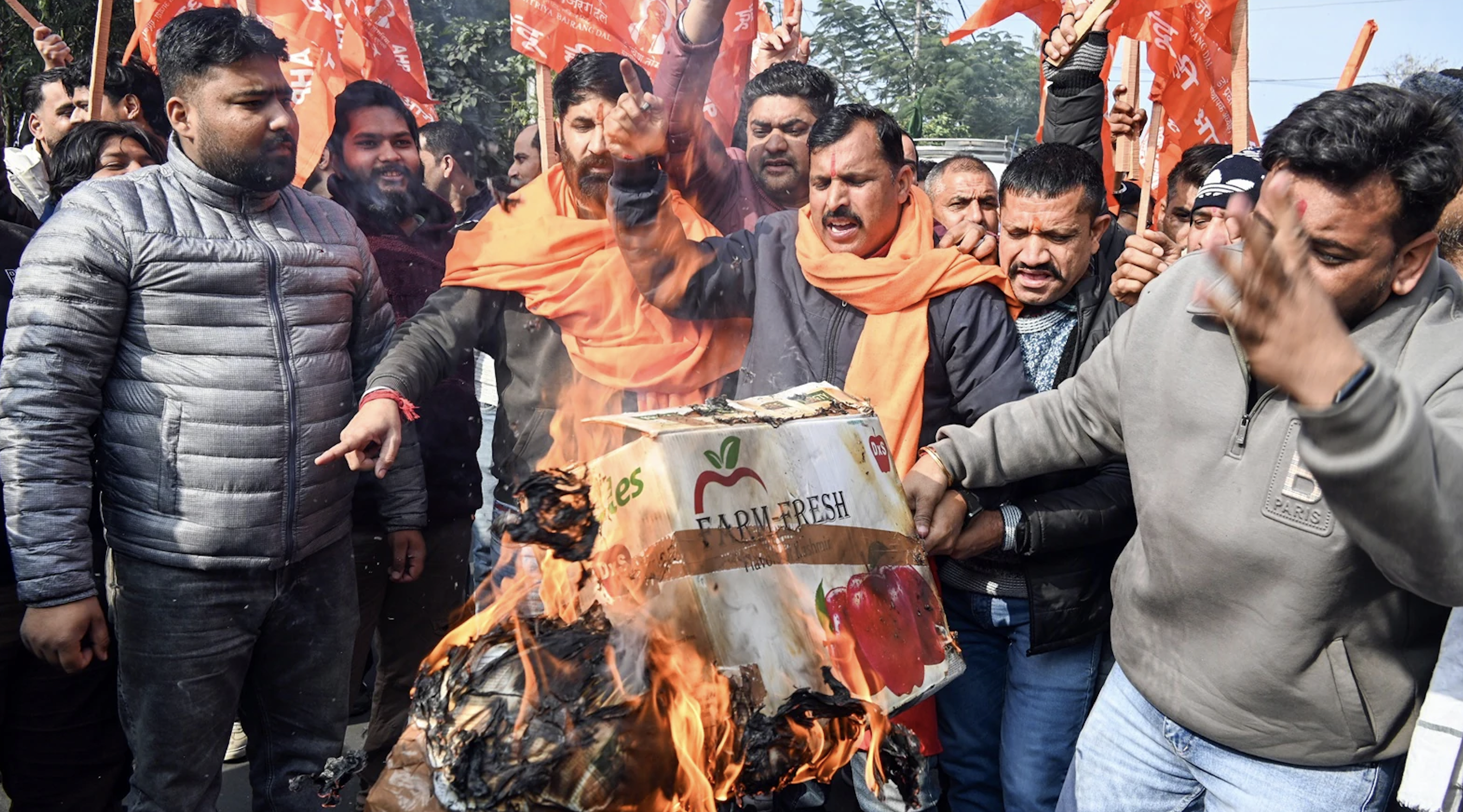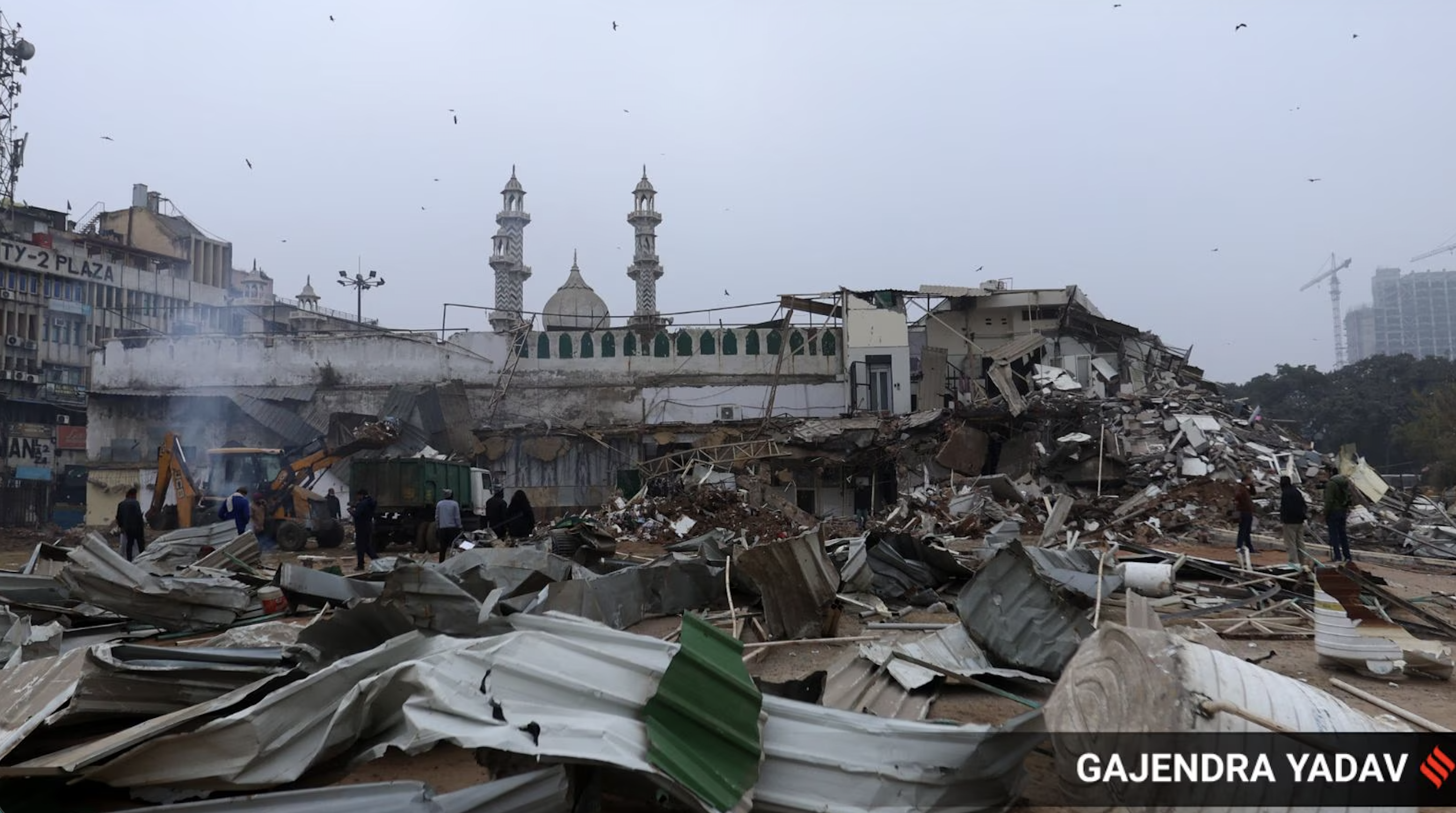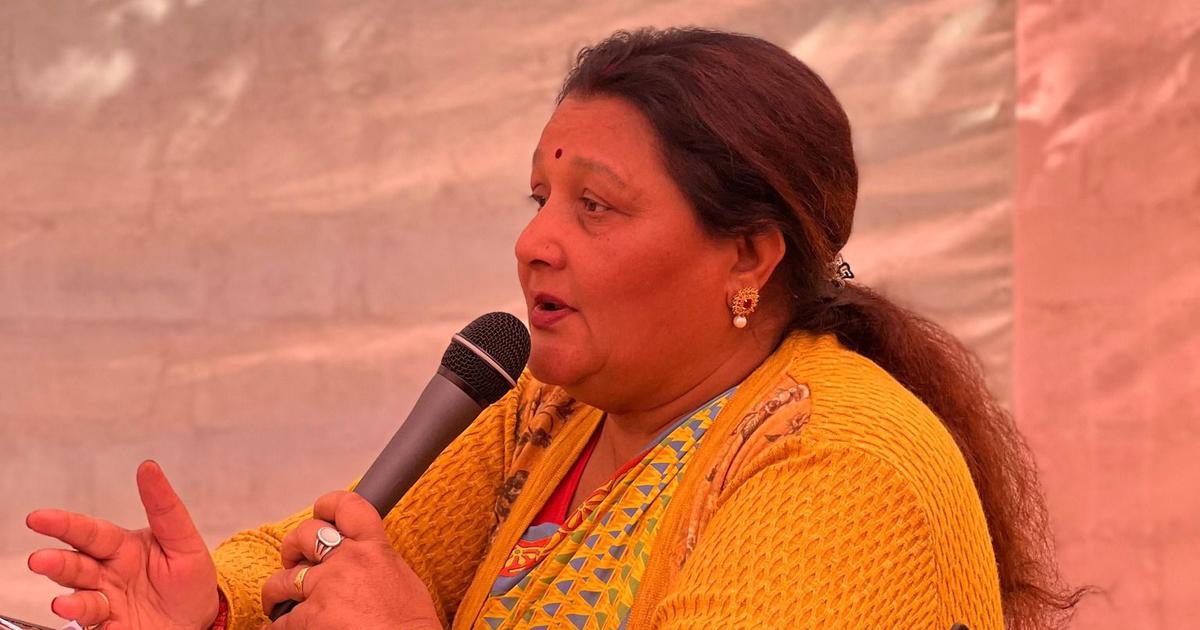
By Prashant Jha
The northeast Delhi riots of February 2020 which left 53 people dead and over 700 injured evoked the horrors of 1986 and will go down as a black mark on the history of communal relations in the country. Nearly two years on, those responsible for allegedly inciting the violence have yet to be brought to book.
Petitions filed to this end are still pending before the Delhi High Court, with little or no progress made in the hearings that took place in 2021. The pleas range from those seeking registration of first information reports (FIRs) against political leaders for allegedly making provocative speeches, to ones demanding action against police officials for atrocities committed during the riots.
After dozens of hearings, almost no significant direction has been passed by the High Court in this batch of matters.
A recent affidavit filed by the Delhi Police revealed that a total of 758 cases were registered, of which 695 are being investigated by Delhi’s Northeast District Police. 62 cases involving major incidents like murder have been transferred to the Crime Branch, while one case of an alleged larger conspiracy behind the riots is being investigated by the Special Cell.
While charges have been framed against a number of individuals and a few others have been granted bail, action is yet to be taken against the big fish.
Status of petitions before the Delhi High Court
Activist Harsh Mander had approached the High Court in February 2020 even as the riots continued to ravage the capital. In his petition, he sought the registration of FIRs against BJP leaders Kapil Mishra, Anurag Thakur, Parvesh Sahib Singh and others for delivering hate speeches and inciting the violence.
A similar plea was filed before the Supreme Court by Bhim Army Chief Chandra Shekhar Aazad, former Chief Information Commissioner Wajahat Habibullah and others seeking registration of FIRs.
There is another petition by the mother of 23-year-old Faizan, seen in a viral video where policemen kicked him and four others while taunting ‘Ye lo azadi (Here take freedom)’ and forcing them to sing the national anthem. Faizan’s mother, Kismatun (61), has alleged that he was denied critical care in custody and died because of it.
A public interest litigation (PIL) was also filed by a Delhi resident, Ajay Gautam, demanding an investigation by the National Investigation Agency (NIA) under the Unlawful Activities Prevention Act (UAPA). The petition sought a direction to the NIA to probe the “anti-national” forces behind the protests and the ensuing violence, adding that the Popular Front of India (PFI) was funding and supporting the protesters. In one of the hearings, Gautam had argued that people were protesting “because they had lost the Ram Mandir case.”
Yet another plea filed by Lawyers’ Voice and the Hindu Sena demanded FIRs against top Congress leaders including Sonia Gandhi and Rahul Gandhi as well as Delhi Chief Minister (CM) Arvind Kejriwal and Deputy CM, Manish Sisodia for making statements with regard to the Citizenship Amendment Act (CAA) and the proposed National Register of Citizens (NRC).
The High Court has tagged all these matters and is dealing with them simultaneously.
While hearing Mander’s plea on February 26, 2020, the High Court Bench headed by Justice S Muralidhar played video footage of the riots in court. During the hearing, the Special Commissioner of Police assured the Court that he would sit with the Commissioner, examine these videos and take a conscious decision. The next day, the case came up before a Division Bench of Chief Justice DN Patel and Justice C Hari Shankar, which gave the Central government four weeks to file a detailed response.
In March 2020, a Supreme Court Bench headed by then Chief Justice of India SA Bobde termed the High Court’s adjournment of one of the matters for four weeks as “too long and unnecessary”, while asking the High Court to take up the matter expeditiously.
Earlier this month, while dealing with another petition highlighting the slow progress of the case, the Supreme Court yet again asked the High Court to decide the petition expeditiously. However, this time, it set a deadline of three months.
Mander’s plea has since been disposed of. Meanwhile, several other petitioners including the Jamiat Ulama-i-Hind and CPI(M) leader Brinda Karat approached the Court with similar prayers.
In August this year, the Court had directed the Delhi Police to file a status report regarding the stage of various cases. However, in November, the counsel appearing for the Jamiat Ulama-i-Hind pointed out that the report by the police lacked details. The Court subsequently called for a fresh report. The petitions seeking the SIT probe, NIA investigation and action against police officials for their atrocities have been tagged with this matter.
Though court records show that these cases were listed for hearing multiple times since February 2020, no direction has been passed. The cases are now listed for further hearing on January 28, 2022.
Bail to activists and protesters
In 2021, a number of activists who were booked under the UAPA for taking part in anti-CAA and NRC protests were granted relief by the Delhi High Court. They were jailed after the police alleged that they were involved in a conspiracy that resulted in the riots.
In June 2021, while granting bail to activists Natasha Narwal, Devangana Kalita and Asif Iqbal Tanha, a Bench of Justices Siddharth Mridul and Anup Jairam Bhambhani prima facie held that the allegations against them did not disclose any commission of an offence under the sections they were charged with. It was also observed that in the mind of the State, the line between the constitutionally-guaranteed right to protest and terrorist activity was getting blurred.
In September, Justice Subramonium Prasad granted bail to five others who were charged with the murder of a Delhi Police official, Rattan Lal. The verdict stated that the right to protest occupies a fundamental stature in a democracy, and the sole act of protesting cannot be employed as a weapon to justify the incarceration of those exercising it.
Activists still in jail
Other activists and protestors, including former Jawaharlal Nehru University students Umar Khalid and Sharjeel Imam, continue to remain in jail.
Khalid was granted bail in April this year in one of the cases arising out of an FIR registered at the Khajuri Khas Police Station. Arguments in his other bail applications are going on before Additional Sessions Judge Amitabh Rawat. The Court will now consider the bail application for submission by the Special Prosecutor on January 5, 2022.
Similarly, Imam was granted bail by a Delhi court in a case of violence but faces three other cases, including one relating to the Delhi riots for which he has been charged under the UAPA.






